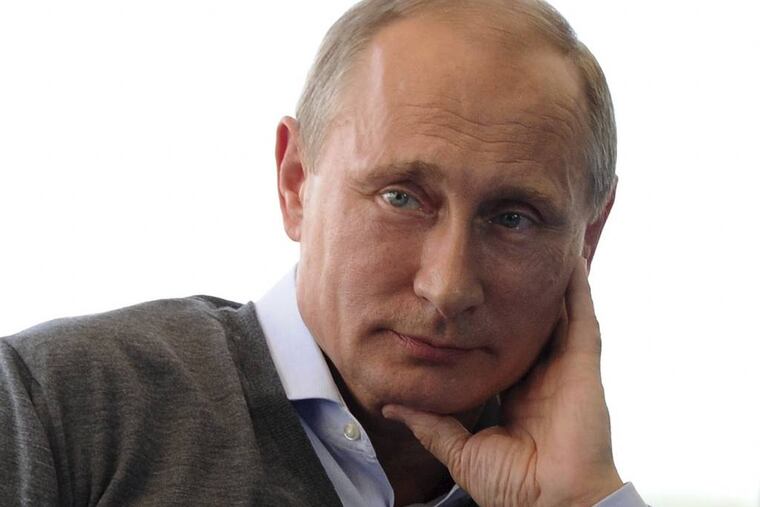Putin's oil change
Sometimes it seems as if America, at 238 years old, is suffering from a sort of midlife crisis that has it questioning its strength and leadership.

Sometimes it seems as if America, at 238 years old, is suffering from a sort of midlife crisis that has it questioning its strength and leadership.
Questioning is fine; few are pleased with Washington these days. But it was more troubling to hear some critics suggest that President Obama should be more like Russian President Vladimir Putin. Some were apparently impressed by the machismo Putin displayed in invading Ukraine even though it was morally wrong.
Much of that sentiment evaporated as casualties mounted in the war Putin incited to keep Ukraine firmly in Russia's orbit rather than the European Union's. And now Russia is experiencing a financial crisis that should further dispel the notion that Putin is a leader to emulate.
Russia's fortunes are closely tied to oil. And with the United States boosting production while members of the Organization of the Petroleum Exporting Countries maintain theirs, oil has become cheap. Motorists in this country are enjoying lower gasoline prices as a result. Meanwhile, in Russia, less oil revenue, combined with Western sanctions for the Ukraine invasion, are eviscerating the economy.
Russia has taken steps in recent weeks to prop up its currency, which fell to a record low of 80 rubles to the dollar this month. Although the ruble recovered over the past week amid government intervention, it has lost 39 percent of its value this year, according to Bloomberg.
Recession and inflation are expected to ensue, which would put more pressure on Putin to respond to the economic sanctions. How he will respond, however, can't be calculated. Many Russians, feeling mistreated by the West since their superpower status ended with the Cold War, have welcomed the national ego boost that Putin provides whenever he stands up to critics.
For the sake of world peace, one must hope that Putin will eventually choose pragmatism and drop his theatrics. But it's never easy to figure out the former KGB colonel. His power is almost absolute, with dissidents fearing imprisonment and oligarchs bowing to him as they stuff their pockets. It may take another Russian revolution to change the status quo.
Meanwhile, Americans need to stop applauding theatrics, too, and recognize the effectiveness of quiet leadership. That's not an endorsement of Obama's tendency to disengage when vigorous and direct appeals and action are needed to overcome domestic partisans and foreign opponents. But it is an endorsement of substance over style.